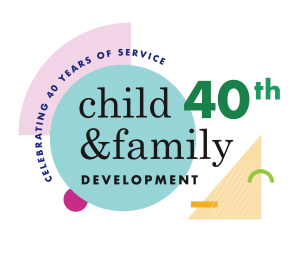By Lindsey Anuzis, MA, LCMHCA, NCC, RBT ~ Child and Family Development
Grief is a natural reaction and refers to the thoughts, feelings, and behaviors connected to the loss of something important or of value. While it is often discussed in relation to death, grief can be experienced following any major change.
With grief there is an initial or primary loss (like the diagnosis of a chronic illness), but there are also secondary losses which are frequently overlooked. Secondary losses are the losses that follow the primary loss- not that they are any less important, but they stem from the first loss (with the chronic illness example think loss of mobility, loss of function, loss of independence and ability to work etc.).
Secondary grief could also be symbolic such as the loss of hopes and dreams, expectations, the loss of plans, the loss of routine, even the loss of identity in some circumstances. Everyone grieves differently, and there is no right way to grieve. So in this time of immense change and uncertainty as a result of COVID 19, you may be noticing some changes in yourself, as well as your kids.
With all the changes from COVID 19, a commonly experienced secondary loss has been disappointment, stemming from unmet expectations. Think of everyone postponing weddings, or having “virtual” graduation ceremonies (myself included), birthday parties, those bringing new babies into this world alone, and not surrounded by loved ones, and even those simply having to cancel family trips. While everyone has been impacted in one way or another, one age group has been hit particularly hard, and those are the kids.
These last few months have been especially hard for kids like the high school seniors who had to miss prom, major sporting events, and graduation last May, only to start their freshman year of college in a new place without that exciting “freshman year experience” we all remember and loved. Those starting high school may also be experiencing new or increased anxiety related to starting virtually at a new school and not getting to meet or make new friends. This could be a great time to explore the opportunities of clubs meeting virtually so your child has a chance to get involved in something, easing their transition into the new school year.
As parents, you may be feeling overwhelmed trying to manage your own emotions and expectations, while simultaneously wanting to offer support to your children. Grief can be a challenging and uncomfortable topic to discuss, but one of the most impactful things you can do for kids during this time, is ensure they feel seen and heard. When I say this, I mean all the feelings, even the tough ones. In allowing your kids and teens the permission to feel, it will not only reduce negative emotions, but it will also improve your communication and relationship with your kids! A win-win!
4 Questions to ask your kids to improve your understanding of their grief experience
1. What are some of your expectations that have changed?
2. What are some of your worries?
3. How has this time changed your views or values?
4. What has been meaningful to you throughout these last few months?
As always, if you are ever concerned that something your child is going through may be too much for you to handle on your own, reach out to a licensed mental health professional for additional support! At Child and Family development, we are booking both in person and virtual counseling sessions for kids, teens, and their families.
Lindsey Anuzis, MA, LCMHCA, NCC, RBT is a Licensed Clinical Mental Health Counselor Associate as well as a Registered Behavior Technician at the Midtown and Pineville locations of Child & Family Development. Lindsey obtained her Bachelor of Science in Psychology from High Point University in High Point, NC and her Master of Arts in Clinical Mental Health Counseling from Wake Forest University in Winston Salem, NC. She provides ongoing therapy services to preschoolers through young adults to address concerns related to mood, behavior, and social skills. Her areas of clinical interest include stress and coping skills, life transitions, grief and loss, self-esteem, identity concerns, bullying and relationship issues, wellness counseling with a mind body emphasis and trauma. Contact us to schedule an intake appointment with Lindsey today.
Child & Family Development

Locations:
Mitdtown:
4012 Park Road, Suite 200
Charlotte, NC 28209
704.332.4834
Pineville:
11940 Carolina Place Parkway, Suite 200
Charlotte, NC 28134
704.541.9080
Website | Facebook | Instagram | Twitter




